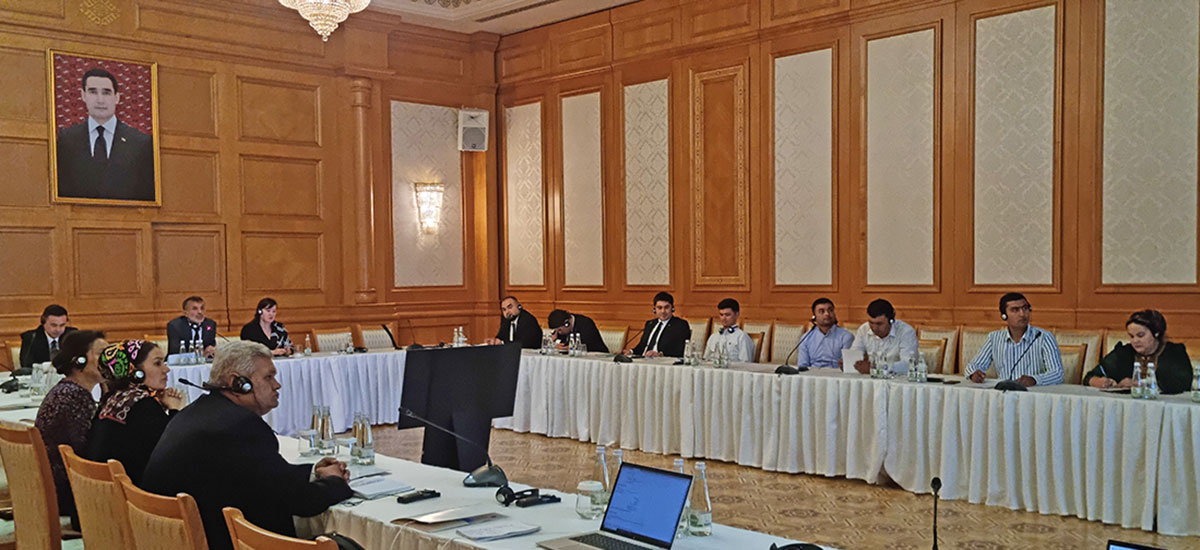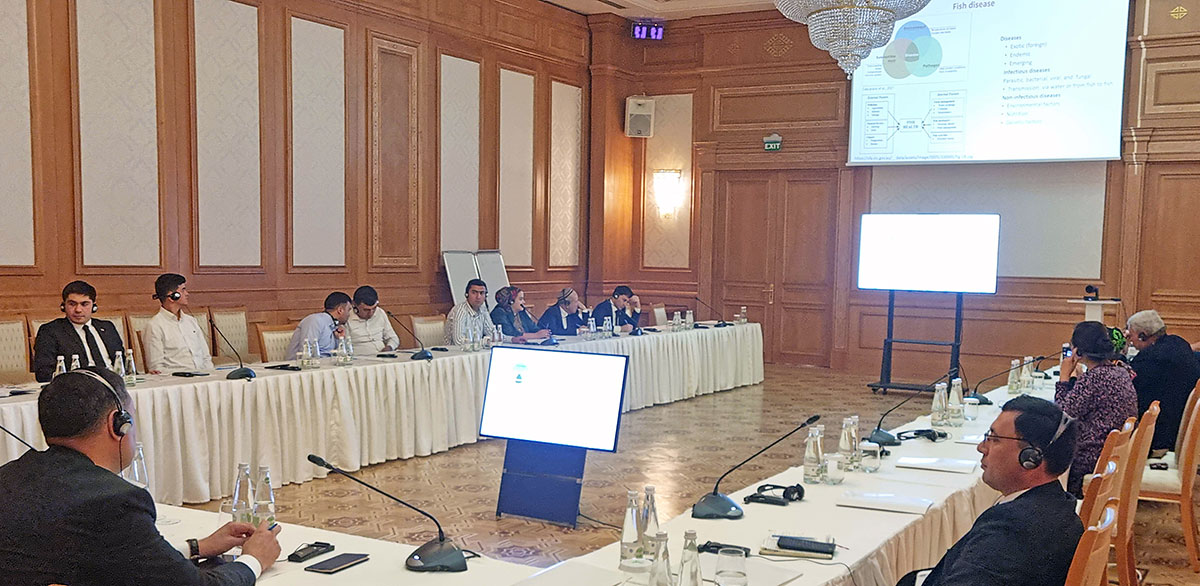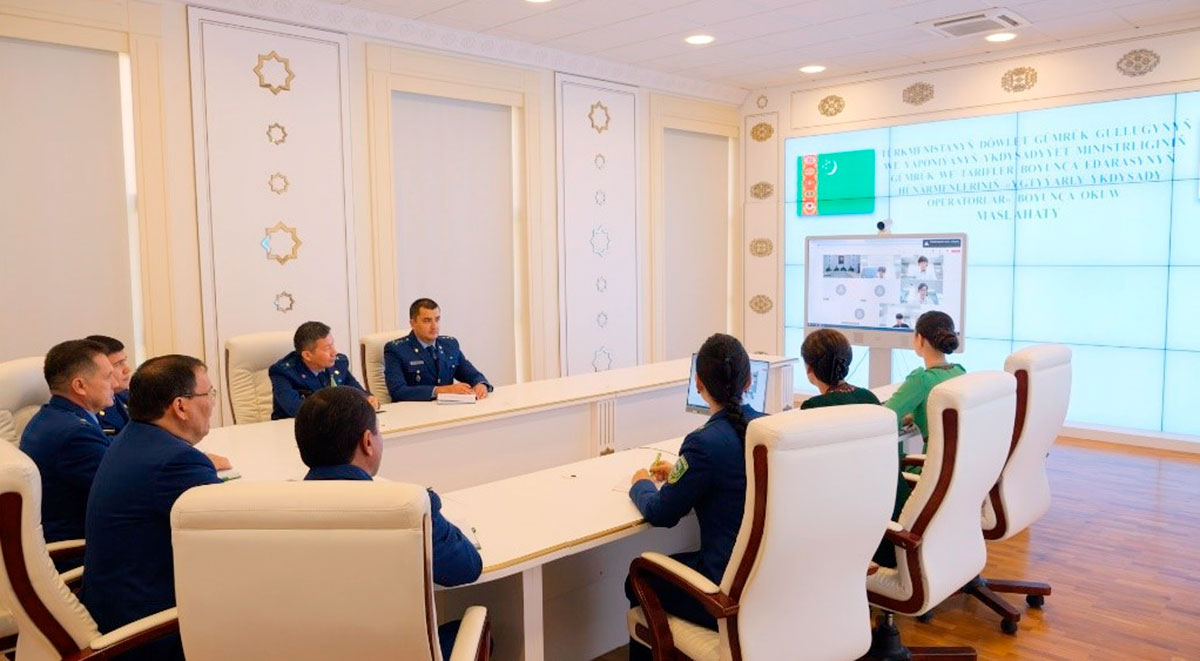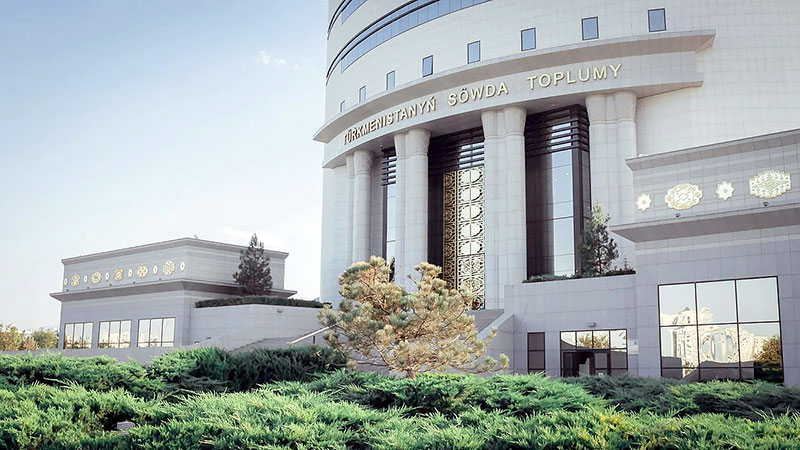A seminar on the development of feed preparation for freshwater aquaculture and ensuring the protection of aquatic animal health was held at the conference hall of the Archabil Hotel.
It brought together representatives of three ministries – agriculture, environmental protection, and finance and economics. The lecturers were consultants on aquaculture and fisheries of the Food and Agriculture Organization of the United Nations (FAO) – Haydar Fersoy and Tom Shipton.
Today, in addition to the state structure for catching and processing fish, including Caspian sprat, there are private small forms of fish production in the country - farms, producers of valuable algae based on natural brines, private fishing cooperatives, family associations, where small volumes of the caught catch are processed in a handicraft manner based on the relevant certificates.
Part of the scientific exchange were issues of increasing fish production based on farms, nurseries, which is associated with access to environmentally friendly, economically balanced - at a reasonable and affordable price, high-quality feed. This important part of fish farming was covered in the presentations of the speakers, who talked about what feeds exist today, the needs for them of a particular breed of farmed fish, or other species of aquatic animals or plants. The attention of those gathered was focused on improving the quality of the feed produced within the country, both in terms of the recipe and their physical quality. It was of interest to producers to learn which feed additives optimize growth, are a prerequisite for increasing the yield of products without saturating them with undesirable chemical compounds that can harm human health, as well as how to reduce production costs and risks, and improve the economic return of fish farms.
Another important issue is maintaining the conditions for growing, fish health and general sanitary biosafety of the aquatic environment and the entire farm space. Such reports interested more beginners in this type of «business» who want to set up production as quickly as possible, but do not have enough knowledge and skills for this, experience, which, of course, will come with time.
The lecturers emphasised that in order not to encounter such factors retrospectively, and to solve the problem after it has already negatively affected production, it is necessary for the head of the nursery and workers to carefully study the issue in order to guarantee the health of the young stock, as well as subsequently constantly increase knowledge. In this regard, methods for maintaining fish health, diagnosing diseases, ensuring biological safety in pools and other related laboratory premises of industrial nurseries were presented. A review of the current state of aquaculture development in Turkmenistan was useful.









